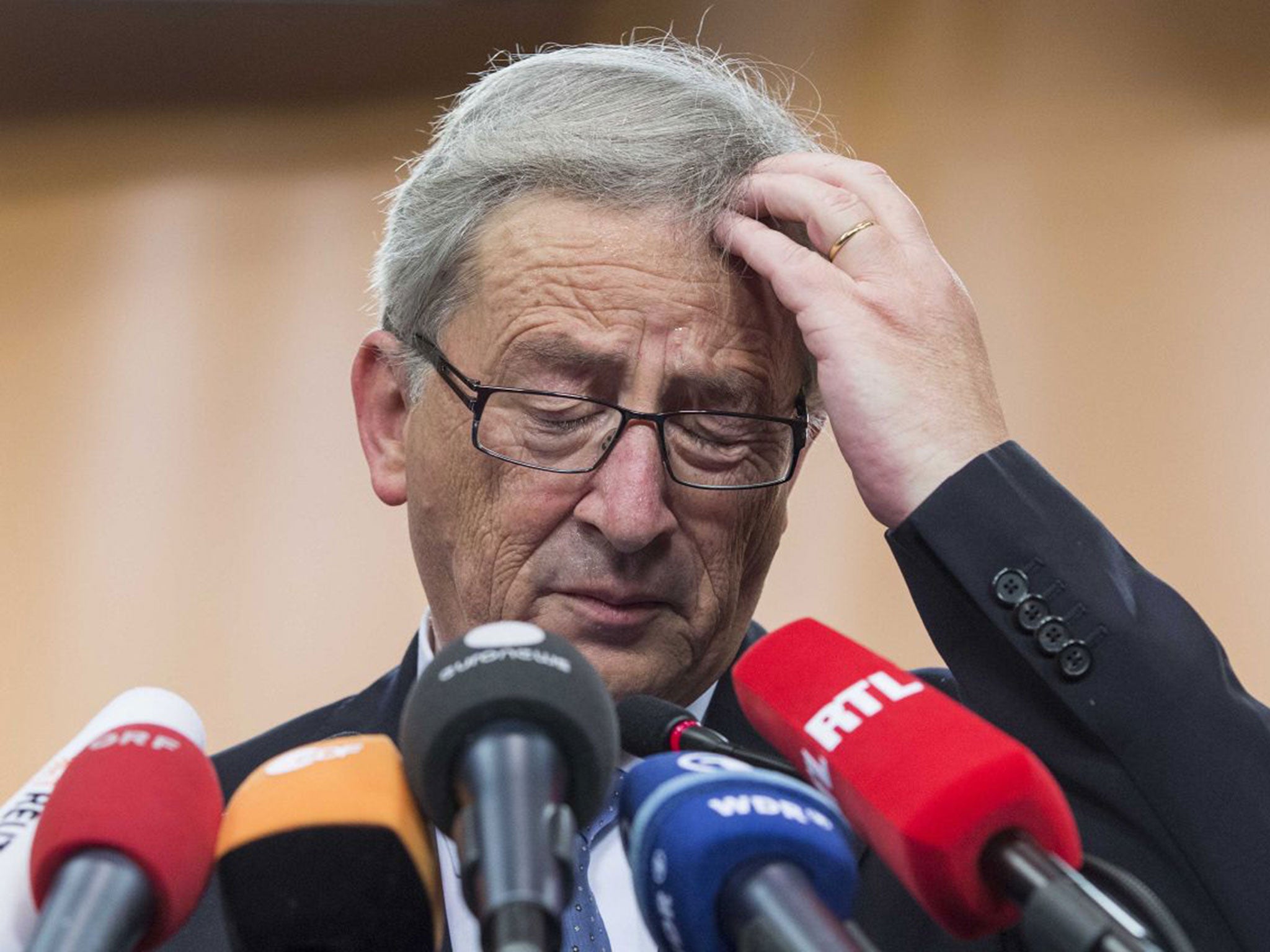Jean-Claude Juncker profile: Europe’s grumpy elder statesman is an expert habitué of the backroom deal

Your support helps us to tell the story
From reproductive rights to climate change to Big Tech, The Independent is on the ground when the story is developing. Whether it's investigating the financials of Elon Musk's pro-Trump PAC or producing our latest documentary, 'The A Word', which shines a light on the American women fighting for reproductive rights, we know how important it is to parse out the facts from the messaging.
At such a critical moment in US history, we need reporters on the ground. Your donation allows us to keep sending journalists to speak to both sides of the story.
The Independent is trusted by Americans across the entire political spectrum. And unlike many other quality news outlets, we choose not to lock Americans out of our reporting and analysis with paywalls. We believe quality journalism should be available to everyone, paid for by those who can afford it.
Your support makes all the difference.He has been dubbed the most dangerous man in Europe by one tabloid, but during an interview with The Independent on a bumpy ride in his campaign bus last month, the only peril came from Jean-Claude Juncker’s scalding hot coffee careering across the table towards one of his aides
No such problems for the 59-year-old’s ashtray, which had been fixed to the table with sticky tape, so Mr Juncker could happily puff away while discussing eurozone integration, clouds of smoke filling a bus decorated with his frowning face.
These are the old-school ways that his detractors never tire of mentioning: chain-smoking and the fondness for a spot of cognac; his lack of energy and apparent exasperation at having to interact with people; a dogged insistence that the European Union must move closer together.
A few months ago, the suggestion that the grumpy elder statesman of European politics might actually end up with the top job was greeted with incredulity in some corners. Yesterday, only Britain and Hungary opposed his nomination, marking an astonishing turnaround for the Luxembourger.
“This is happening in a fit of absence of mind,” said one British diplomat ahead of the European Council summit. The diplomat had a point: many EU leaders appear to have backed themselves into a corner by supporting a controversial new process which heralded the rehabilitation of Mr Juncker.
For the first time this year, political groups in the European Parliament put forward candidates to campaign for the position of Commission President. The group that won the most seats in the assembly would then recommend its candidate for approval by the 28 heads of state, thus giving the process a sheen of democracy, whereas before it took place behind closed doors.
Not everyone was convinced by the idea of removing the neutrality of the top job or handing so much power to the Parliament: British diplomats were openly scathing, and the German Chancellor, Angela Merkel, was also sceptical. But in many countries the media ran with the idea and covered the debates between the candidates, so when Mr Juncker’s European People’s Party won the most seats at end of May, leaders including Ms Merkel were under pressure to go along with the process.
This has resulted in a rather bizarre situation where few EU diplomats are willing to give a ringing endorsement of the man they are nominating. “Mr Juncker is a very experienced European politician,” was the best one official could come up with.
But Mr Juncker does have his strengths: just ask the Luxembourgers who kept re-electing him. When he finally stood down last year after a complicated spying scandal, he had spent 18 years in power, making him one of the longest-serving democratically elected leaders in the world.
His popularity was largely down to economic policies which left Luxembourgers the richest citizens of the EU. That those policies included making the tiny landlocked nation very attractive to foreign businesses wanting to stash away their cash was not lost on his rivals for the Commission presidency, who accused him of presiding over a tax haven.
He also knows EU politics inside out, serving as head of the group of eurozone finance ministers from 2005 to 2013. While he may scowl his way through debates and press conferences, he has a certain charm and wry humour in person, and that helped him in the arduous back-room negotiations which helped drag the currency union back from the brink of a break-up.
While these secretive dealings can alienate voters, the leaders who campaigned against him may be banking on some of that diplomatic skill in future.
“Juncker is a very rational, calm and reasonable person, and Hungary will be able to find common ground with him,” said the Hungarian PM, Viktor Orban. “In politics a degree of courtesy is necessary, otherwise relationships turn sour; most EU leaders have this courtesy.”
Join our commenting forum
Join thought-provoking conversations, follow other Independent readers and see their replies
Comments